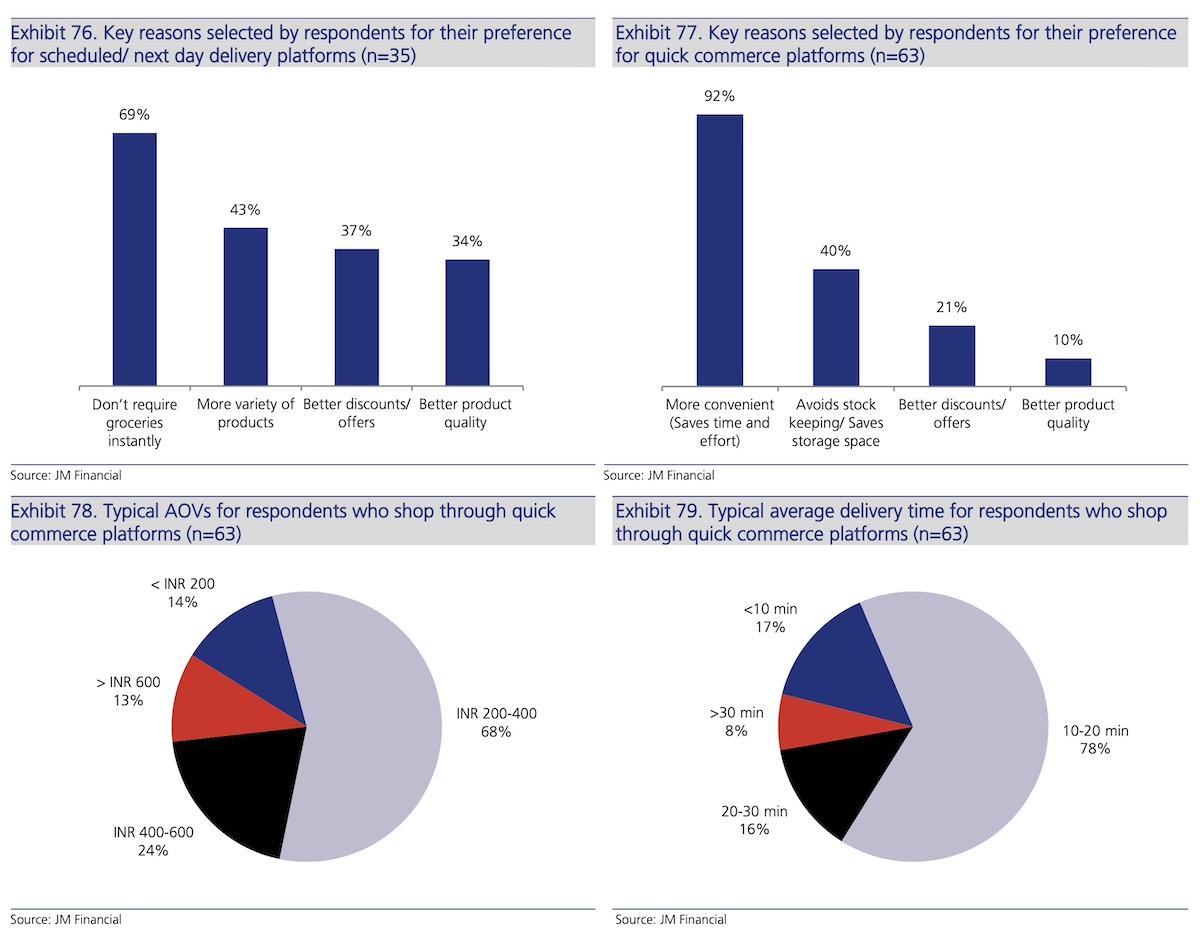Zomato’s Blinkit is on a fast track to rapid commerce dominance in India

[ad_1]
Even as flash trading has slowly faded away in many markets and several heavily funded startups have collapsed in the past couple of years, India stands out as a striking anomaly where the model remains vibrant.
India’s express commerce market witnessed a staggering 10-fold growth between 2021 and 2023, driven by the sector’s ability to cater to the distinct needs of urban consumers seeking convenience for small, unplanned ticket purchases. However, despite this rapid expansion, express commerce has only captured a modest 7% of the potential market, with the total addressable market (TAM) estimated at $45 billion, exceeding the food delivery market, according to JM Financial .
Zomato’s Blinkit leads the quick commerce market in India, capturing as much as 46% market share by GMV in the quarter ended December, according to a new analysis.
Swiggy’s Instamart follows with a 27% share, and new entrant Zepto is quickly gaining ground, grabbing 21% of the market, and Bigbasket’s BB Now trails with a 7% share, according to brokerage JM Financial. Reliance-backed retailer Dunzo, which pioneered the express commerce model in India, has almost completely lost its market share.
“With more than 10 active players, the space was very competitive two years ago,” JM Financial wrote about the flash trade market in a recent note. “It appears that an intense, multi-year phase of cash burn will soon follow. However, contrary to expectations, many players, including some well-funded players, backed out early in their endeavors. While some faced financing challenges, a few others were affected by issues Structural such as lack of product market fit, inability to solve local complexity, inability to build a strong end-to-end supply chain and 4) failure to create a strong brand recall.”
As express trade players compete for a larger slice of the market, the success of their ventures hinges on the development of efficient supply chains. Companies are making significant investments in dark store operations, streamlining inventory management, and forging direct partnerships with fast-moving consumer goods manufacturers and farmers. By circumventing traditional distribution channels, these companies aim to improve product quality, speed up delivery times, and enhance overall operational efficiency, industry experts said.
Dark stores, the backbone of express commerce operations, have significantly expanded their product offerings, now carrying more than 6,000 SKUs per store, a significant increase from the 2,000 to 4,000 SKUs they carried just a few years ago, JM Financial said. In contrast, traditional neighborhood kirana stores, which are ubiquitous across Indian cities, towns and villages, typically stock between 1,000 and 1,500 items. On the other hand, large modern retail stores offer a much wider assortment, with between 15,000 and 20,000 products available to customers.
There was also a notable rise in the average order value among express trade operators, which rose to around Rs 500 ($6) from the previous range of Rs 350 to Rs 400. This increase in average order value puts express trade away from kirana stores. Customers typically spend between Rs 100 and Rs 200 per transaction.
While the convenience of quick trading is undeniable, profitability remains a concern for investors. Blinkit – which was acquired by Zomato in 2022 – aims to achieve adjusted EBITDA break-even by Q1 FY25, while Zepto has set its sights on EBITDA profitability in 2024. Swiggy’s Instamart is also focusing on Profitability, with the parent company signaling that the peak of investments in the business is now behind them.
However, the long-term sustainability of the express trade model remains to be seen. With intense competition and the ongoing need for huge investments in technology and supply chain, profitability may be out of reach for some players. Additionally, market growth potential may be limited due to the concentration of demand in urban areas, with small towns and rural areas presenting unique challenges in terms of population density and consumer behavior.
The market may attract more players with large funds. Flipkart is considering entering the express commerce market by May this year, TechCrunch reported last week.

[ad_2]
Source link




